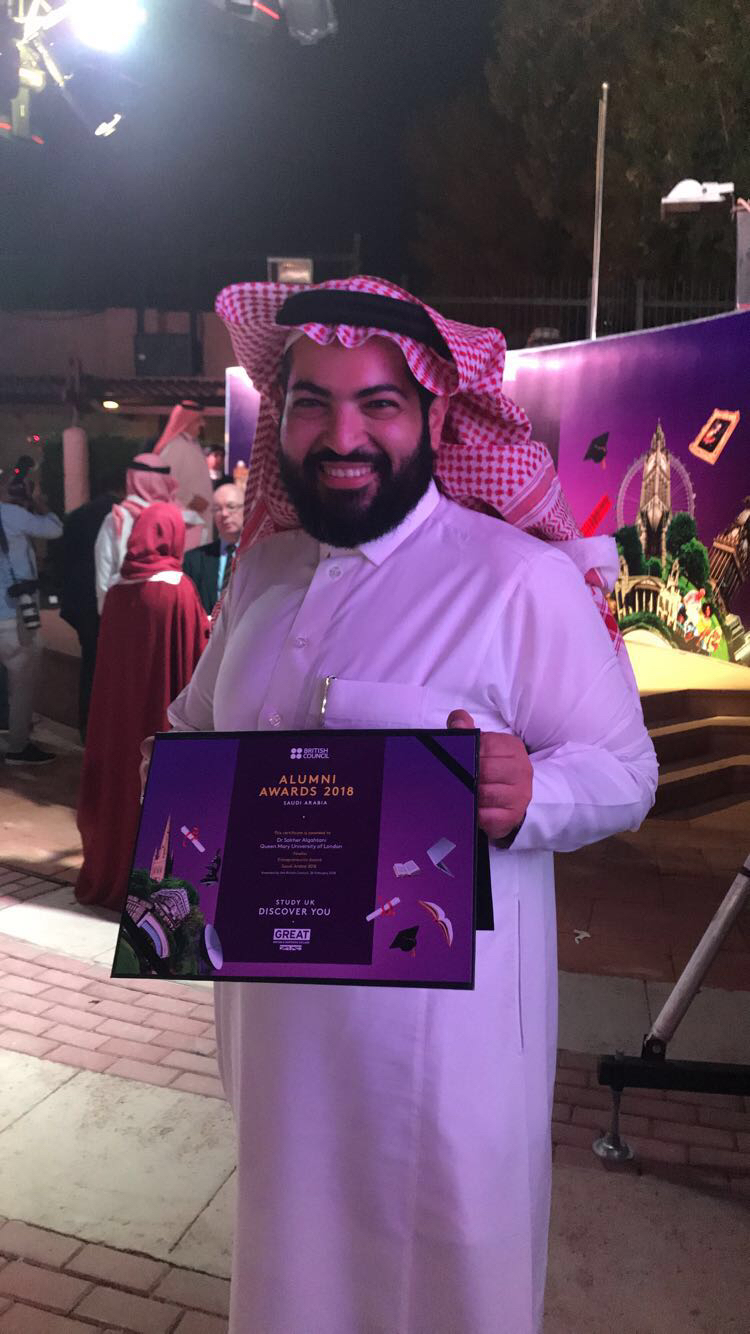Alumnus profile: Sakher AlQahtani
Queen Mary alumnus, Sakher AlQahtani, from the Institute of Dentistry in Barts and The London School of Medicine and Dentistry, was recently nominated for a British Council Study UK Alumni Award for his work creating The Atlas of Tooth Development. He was a finalist for the Entrepreneurship category of the ‘Saudi alumni of British universities’ branch of the awards.

It’s a pleasure to meet you, Sakher! Please could you tell us a little more about your work?
The Atlas of Tooth Development was the result of both my masters and PhD work at Queen Mary. The Atlas is a new method of dental age estimation that has received international recognition and acceptance. It has been translated into 22 languages and is available on the Queen Mary website for free: www.atlas.dentistry.qmul.ac.uk.
That sounds amazing! How did you come up with the idea to put this together?
The initial idea for creating the Atlas came from my supervisor Dr Helen Liversidge, a world-renowned expert in dental age estimation, with the support of my second supervisor, Professor Mark Hector, who was also the Head of Department for oral growth and development; he truly enriched my life on personal and scientific levels. Both Dr Liversidge and Professor Hector provided guidance that was essential in helping me develop the Atlas to where it is today.
How has the Atlas benefitted people so far?
The Atlas is used extensively by immigration control, forensic scientists, anthropologists, museums and in teaching around the world. Therefore, as you can see, it has had many practical uses so far in various industries!
How did the Queen Mary environment and community influence you?
Queen Mary offers a new angle to the London experience, at least for an international student. While London is a true global city with a diverse and accepting culture, Whitechapel has a different flair. The beautiful mix of east and west, and the strength that diversity adds to that community, was palpable from the beginning. I felt very welcome and learnt a great deal not only from the lovely people of east London who used to seek treatment at the hospital, but also from the wonderful nurses and auxiliary staff (including translators) that respected and understood every culture. I remember that everyone, regardless of faith, knew when Ramadan was taking place and didn’t drink coffee (which is my weakness) in front of me no matter how many times I told them that it was okay and that I did not mind. Little things like this really make a big difference. Respect for others, whomever they may be, was extremely evident. This really changed my view of the world. It made me challenge some preconceptions that I had and it helped me adopt a new philosophy to life.
How did your degree from Queen Mary prepare you for your career?
A degree from Queen Mary comes with a reputation for hard work and dedication that precedes it. The type and style of training I received was of the highest standard. In addition, when my work on the Atlas started to receive international recognition, Queen Mary supported me in promoting it through international meetings and workshops. It provided a platform for me to promote my work. Queen Mary also created a dedicated website for the Atlas and agreed to fund a software version that I designed during my PhD.
What advice would you give to current students at Queen Mary?
My advice to current students at Queen Mary is to embrace the diversity among which they have found themselves. Get to know someone who is different to you, learn from each other, and teach each other. Understand that we are all human. This can never be taught; it has to be lived and experienced. Queen Mary offers the perfect environment for that, so use it, lose all prejudices, and be human. To Saudi students in particular I say: open your hearts and minds, believe in yourselves, and do not be restricted in your views on life. You can achieve the impossible.